Clapbacks and comebacks: Families react to “Does your kid really have ADHD?” and other judgments

Stay in the know
All our latest podcasts delivered right to your inbox.
How do we react to the judgment of others when we’re raising kids who learn differently? And how do we handle our own judgment?
In this Season 3 bonus episode, Amanda Morin and Gretchen Vierstra share favorite moments from families who are “in it.” Get advice on — and even comebacks for — questions like “Is ADHD even real?” Hear why one mom stopped sharing her son’s diagnosis with family and friends. Find out how one couple learned to shut out the noise of others to focus on what was right for their kids.
Related resources
Episode transcript
Amanda: Hi. I'm Amanda Morin.
Gretchen: And I'm Gretchen Vierstra.
Amanda: And as you probably know, we are the hosts of this podcast.
Gretchen: You haven't heard from us in a while because we're taking a summer break, getting some rest and relaxation, and then planting the seeds for our next season of "In It."
Amanda: But we do understand that being "in it" doesn't stop just because it's summertime. So don't worry. We are here for you with a bonus episode.
Gretchen: It's a compilation of some of our favorite moments from the first two seasons of "In It."
Amanda: The overarching theme here has to do with how we handle the judgment of others, or maybe our own internal judgment when raising kids who learn differently.
Gretchen: We hope you'll take from these conversations what we did when we went back and listened. It's a reminder that there are so many people out there who are "in it."
Amanda: OK, so let's get started. The first clip we'll hear dwells on a question that parents of kids with ADHD confront way too often: "Is ADHD even real?" And one of the reasons I love this episode so much is because it gave me a chance to express some of my own feelings around this question.
Gretchen: And Amanda, this is from way back, when you had another co-host, Lexi Walters Wright. And you were also joined in this episode by the therapist and bestselling author Stephanie Sarkis.
Lexi: Amanda, is this a question that you get?
Amanda: Yes. And as you know, Lexi, I have both a son and a spouse with ADHD.
Lexi: So when does it usually come up? Like, what are the circumstances?
Amanda: Yeah. So, Lexi, it's not always a dark question and sometimes it's that verbal side-eye from another parent. Like when they're watching my awesomely delightful and scattered son who's super fast on the playground, he bumps into people, he interrupts conversations, and I'll be like, "Whoa! He is having a really rough day with his ADHD." And the other parent will say something like, "Does he really have ADHD? He's so focused when he's at our house playing with Legos or whatever."
Lexi: I get the sense that this is maybe a fraught question for you.
Amanda: Yeah, yeah, yeah, it can be. You know, when I get asked if ADHD is real, it feels like I'm being judged. It feels like people are commenting on my parenting. It feels like they're passing judgment on whether I can keep my kid under control. And it sometimes feels like they're watching me make excuses for my child when I'm not making excuses — I'm just telling it like it is.
I want to know, so if someone asked a parent like me, a parent who has a child with ADHD, whether ADHD was real, how would you recommend that that parent answer the question?
Stephanie: I would say, well, let me know why you're asking that. First, I want to know because that's kind of rude.
Amanda: Dr. Stephanie Sarkis is a psychotherapist who works with children and adolescents. She's one of Understood's experts.
Stephanie: So first, I want to know, you know, tell me what your concerns are. I mean, maybe it's a grandparent. Maybe it's an aunt or uncle. You know, so I mean, that that makes sense. But if it's just some random person, you know, from like PTA or something, that's rude.
Lexi: In working with parents, have you found effective ways to help a parent understand that this is not just laziness or distraction or, you know, a troubled kid?
Stephanie: Well, I meet parents where they're at, and what I mean by that is I ask them, you know, tell me what you know about ADHD, and where are some places that you've got the information from? What questions do you have? Now, sometimes it's just that just by accident, people have gone on to websites that don't have a lot of valid information. Sometimes a family member took medication for ADHD and they may have had side effects. And so what I talk to parents about is, you know, let me look at what you've learned about it and let me tell you what I know about it. And let's put our heads together and come up with a solution that best helps your child.
And also, I would explain that there's a difference between can't and won't. It's not that your child doesn't want to do their chores, it's that they can't remember multi-step tasks. And there's a big difference between can't and won't. And we really need to focus on the fact that she can't do some things rather than looking at it as a won't, which is a willful behavior.
Gretchen: Oh my goodness. I love Stephanie's first answer to the dilemma of how to respond when someone asks, "Is ADHD real?" She's so right. It's a rude question, right? So rude. So rude. OK.
So next, we're turning to another conversation that also touches on making decisions about what's best for your kid while navigating the expectations and — let's admit it — judgment of the people around you.
Amanda: For this episode, Understood expert Bob Cunningham and I got to speak with Dr. Tumaini Coker, a pediatrician and researcher in Seattle, whose research looks at how socioeconomic inequity impacts health care for kids. This was an episode about ADHD in Black children. But what made it extra special for me and Bob is that Tumaini brought to the conversation not only her expertise, but also her experiences as a parent of twin boys with ADHD.
Gretchen: Let's listen.
Amanda: Can you tell us the story of how you got to that diagnosis?
Tumaini: Yeah, so I kind of thought early in at least one of them, the one that has the more severe inattentive ADHD, I mean, kindergarten and first grade, you know, it was workable with the teachers and kind of just instinctively kind of managed his behavior in the classroom. And he was really more inattentive. His twin brother was more on the hyperactive side. But I recall really distinctively in, I believe it was second grade, I was doing like a morning drop-off and one of — the son who had the more severe inattentive ADHD, the teacher stopped me and she said, I know you're a pediatrician, so I'm sure you know this already, but your son is probably the most inattentive child I've seen in my 20 years of teaching.
Oh, my God. It just hit me so hard because we had just been trying to, you know, just get through. But when she pointed that out to me, it just, you know, hit me like a sack of rocks. And so at that point, I talked to my husband. I said, "We really have to do something." I think he was kind of more — I was more shocked, although I knew it. He was more offended, I think, that she would say that. And I think this is a little bit of — if I go back to at least in my family, as an African-American family, culturally, what ADHD, you know, that term signifies, you know. It has a negative connotation. People see it as a label that the educational system puts on Black boys to hold them back. And so I knew that to get the diagnosis, it would be better to go to a psychiatrist for him. I think he needed to see a specialist to really bring him on board.
Amanda: Did you share the diagnosis with friends and family? And how did they respond?
Tumaini: So I have. And it's interesting. The one that is inattentive, no one was surprised. Because it is obvious, like he, you know, he's kind of always in the clouds and also just has this, you know, you'll tell him something and the next second, he doesn't even know what you just told him to do. So, yes, I think as he got older, people go, OK, yeah, that makes sense. The other one, who is more hyperactive, you know, his inability to focus is a little bit more internally than externally. So you can't look at him and tell that he's not able to focus. And so I stopped telling people that he had ADHD. Because, you know, if I'm really honest with myself, I think it's hard for people to understand that both kids could have ADHD and they could be so different.
So it's almost like I felt like if I said, "Oh, yeah, both the twins have ADHD," they'd almost doubt me. You know, I guess I had a fear that they would think, "Oh, you're just overdiagnosing them. How could both possibly have ADHD?" And plus, I see him and he's doing fine and this kind of thing. And so in a way, it became kind of like a way to protect myself from external criticism or my perceived —.
Amanda: I so get not wanting to deal with other people's feelings about how you're parenting your kids or whether or not they have ADHD. Gretchen, the conversations we've heard so far have a lot to do with that, with navigating other people's perceptions and reactions. And this last one goes a little bit deeper into our own feelings as parents, when we discover that our kids don't think or learn like us.
Gretchen: This is a really powerful conversation you had with Kevin and Lindsay, who talk about the moment they realized that school wasn't going to come as easily to their kids, Sam and Maggie, as it had for them.
Amanda: Earlier in the episode, we learned that Maggie has a language-based learning disability which impacts her working memory. Sam's disabilities relate more to physical motor skills. Here, Lindsay and Kevin talk to us about how they've come to understand and even appreciate these differences that at first seemed so foreign to them.
Lexi: What was it to you when it looked like school wasn't going to be as easy for her as it had been for you?
Kevin: Oh, it's definitely disappointing. I mean I mean, because, you know, we had a certain you know, when you have kids, you have a certain vision of how things are going to go. And it's always rosy and optimistic, right? But parenthood is a series of steps where you realize that your kids are like everyone else, so they're not perfect. And we had steps like this before. Both Maggie and Sam have vision problems, so they had to get glasses when they were really young. And that was our first moment of, "Oh, wait, our kids aren't perfect," you know? And it seems like was just a stupid thing now, but at the time, just Maggie getting glasses was heartbreaking for us. Now it's a tiny thing. We don't even think about it, you know?
The news in kindergarten was it was an even bigger blow to that idea that this wasn't the path that we had imagined for our kids, first Maggie and then Sam later on. And yet, you know, that's the path they're on. And you can get upset that it's not the perfect way it's going to be. Or you can realize this is who your kid is, and you've got to meet them where they are.
Amanda: It sounds like they've redefined your expectations of what parenting would be. Does that sound accurate?
Lindsay: 100%, I think in in two ways. You know, we live in a university town that sends tons of kids to Ivy League colleges. And, you know, the conversations at the school board meeting and around town are just about how stressed our kids are. And there's this great author that calls it the checklisted childhood. Like, we're doing everything we can to sort of build our kids' resumes so they get into the perfect college and they have the perfect job.
So I would say one of the most beautiful ways and one of the most freeing things that having the kids we have did was it sort of threw all of that out the window. Like I feel very free that our kids do not have to compete with other kids. And that is not saying we're lowering our expectations at all for our kids. It's saying what we're going to do is really figure out the kids we have and what's going to make them thrive. And so it doesn't matter if so-and-so is going to this college and so-and-so is going on to do this. In some ways, it was like so relieving to not even have to be a part of that conversation or to feel influenced by it. Because I think we learned early on like we have to know the kids we have and the way that they're going to be the most successful is really figuring out what's right for them.
Gretchen: Figuring out what's right for them. I think that should be our mantra, Amanda. Not what's right for all the folks on the sidelines, right?
Amanda: Totally. And remember, there's lots more to listen to. You can find all of our past episodes by subscribing to "In It" wherever you get your podcasts. Or go to our website: Understood.org/podcast/in-it.
Gretchen: If you're a fan of "In It" and if you think other parents, teachers, kids, whoever could get something out of "In It," why not rate and review us? It's really the best way to get the word out about our show.
Amanda: Thanks for listening to "In It," part of the Understood Podcast Network.
Gretchen: We'll be back in August with new episodes of the show. Meantime, we have a favor to ask. We want to know what topics you'd like us to cover next season. Is there something you'd want to learn more about? Or is there something that you think would be of interest to other folks who are "in it"? Send us an email at init@understood.org with your suggestions.
Amanda: "In It" is produced by Julie Subrin. Briana Berry is our production director. Justin D. Wright mixes the show. Mike Errico wrote our theme music. For the Understood Podcast Network, Laura Key is our editorial director. Scott Cocchiere is our creative director. And Seth Melnick is our executive producer.
Gretchen: Thanks for listening, everyone, and thanks for always being "in it" with us.
Hosts

Gretchen Vierstra, MA
is the managing editor at Understood and co-host of the “In It” podcast. She’s a former educator with experience teaching and designing programs in schools, organizations, and online learning spaces.
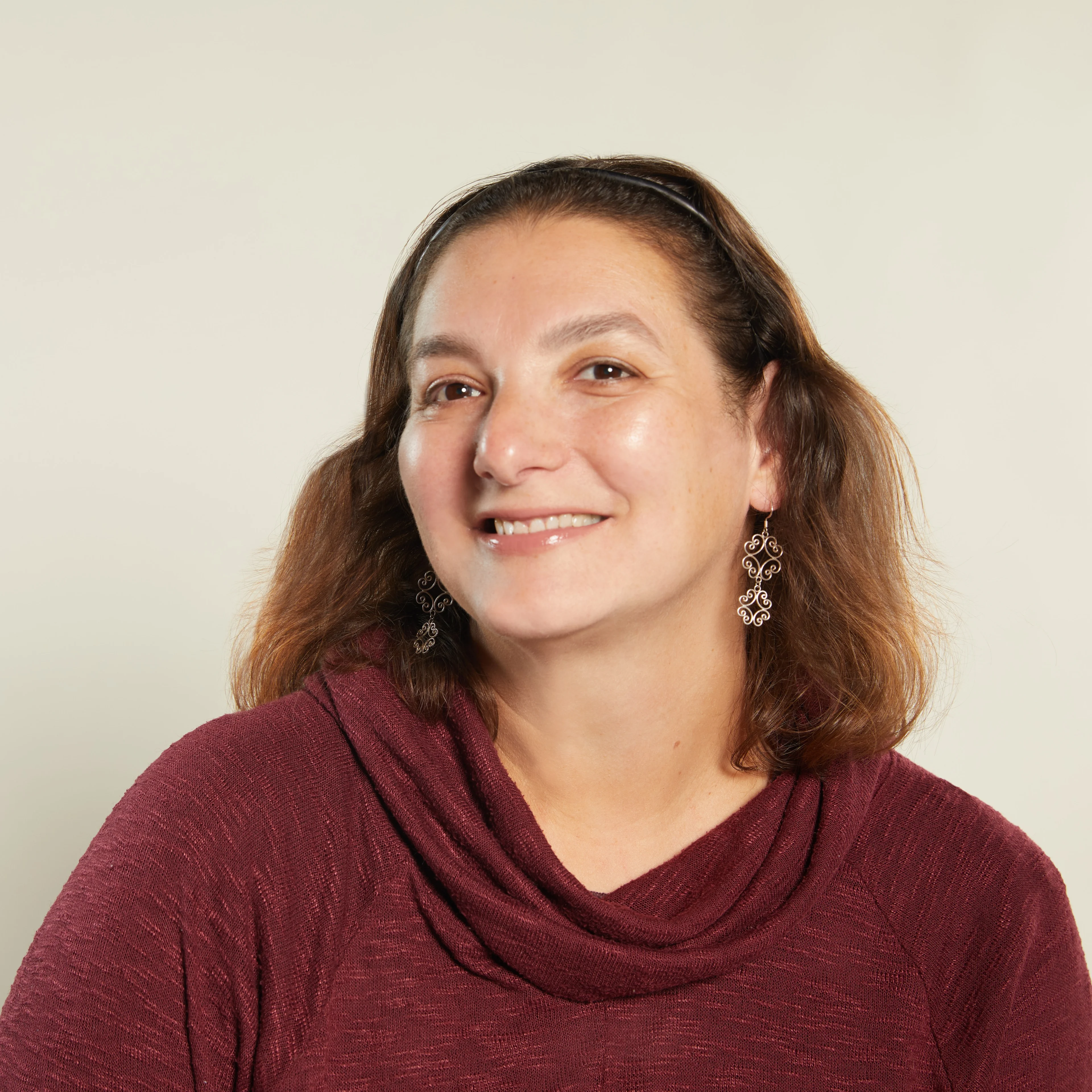
Rachel Bozek
is co-host of the “In It” podcast and the parent of two kids with ADHD. She has a background in writing and editing content for kids and parents.
Latest episodes
April 25, 2024
Learn about common reasons families might look for a special education attorney and what their other options are.
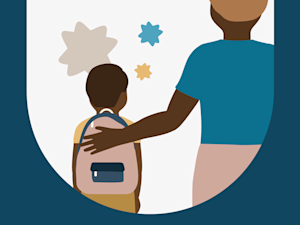
April 11, 2024
Learn ways to advocate for your child at school while maintaining a good relationship with their teachers.
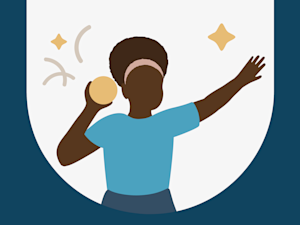
March 28, 2024
The track and field gold medalist shares her story and talks about ADHD, dyslexia, and building confidence.

March 14, 2024
The hosts interview kids’ book author Lindsey Rowe Parker. She talks about her new picture book about sensory differences in kids.
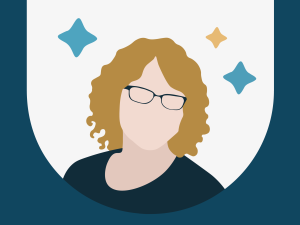
February 29, 2024
Understanding what a language disorder means for your child can be overwhelming. Here’s help from an expert.

February 15, 2024
Talking with your child about their diagnosis of a learning and thinking difference can be tough. Get advice from an expert.
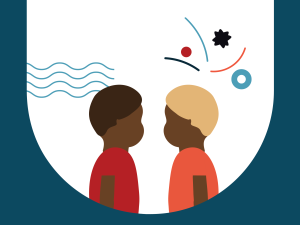
February 1, 2024
How can you manage the challenges of having one child who learns and thinks differently and one child who doesn’t? Get advice from an expert.
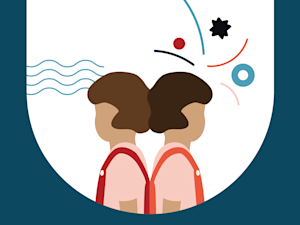
January 18, 2024
Any sibling relationship can be hard to manage. But what happens when one of the siblings has a learning or thinking difference? Here’s one mom’s story.

January 4, 2024
Overwhelmed by talking with your child’s pediatrician about ADHD or learning differences? These tips can help.
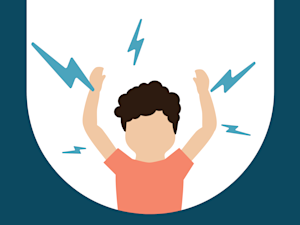
December 14, 2023
Tantrums and meltdowns are challenges all parents face. Get tips for projecting calm when kids and teens have tantrums.